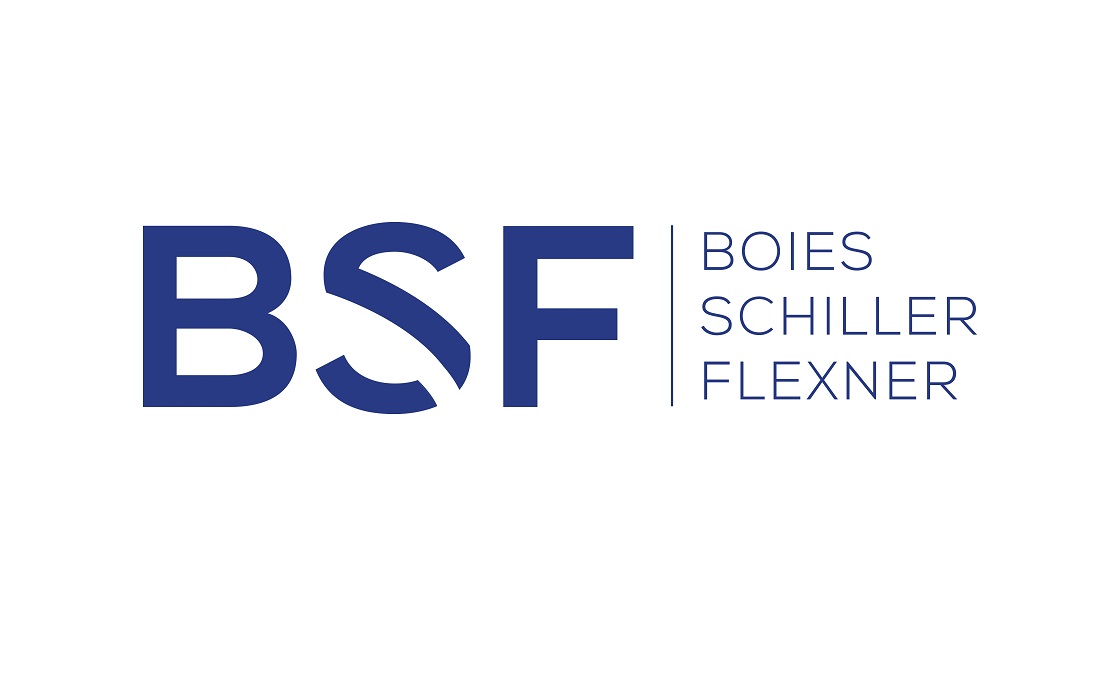
John Freund's Posts
3709 Articles

Flight PS752 Class Action Certification Order
Litigation Finance Can Help GC’s Maintain Control
Ford’s Powershift Clutch is Still Not Up to Snuff
Wirecard Insolvency Class Action Grows More Complex

Boies Schiller Flexner forming international investor group to recover losses – Greensill / Credit Suisse Supply Chain Finance Funds
Are There Caveats to the Widespread Embrace of Litigation Funding?

Augusta Ventures completes new £250m fundraising as investors back strong market surge in legal and corporate sectors
Auckland Cladding Case: Defective Product or Incompetent Builders?
A New Alternative Asset Class: Patents
Bondholders Seek Crowdfunding for LCF Appeal
Evaluating Duration in Commercial Litigation
An Impassioned Defense of Litigation Finance
ASC Ordered to Produce Patient Billing Records by Florida Appeals Court
Climate-Related Litigation is Coming. Who’s Ready?
Akhmedov Divorce Settlement Hinges on Superyacht
Will Federal Courts in New Jersey Soon Require Funding Disclosure?
- The identity of the funder
- Whether funder approval is required for settlements or decision-making
- The funder’s financial interest (specifics of the funding agreement)
Funding Support for LawTech Startup ‘Find Others’ Grows
Litigation Funder LegalPay Fundraises with Accelerator VC

Validity Welcomes Marlon Becerra and Shao-Jia Chang for the 2021 Equal Access Fellowship

Both Law Firms and Plaintiffs Benefit from the Expanding Consumer Legal Funding Industry
- Immediate, much-needed financial assistance to pay medical, housing and living expenses while their legal claim is in process
- Zero to no risk to the consumer, since consumer legal funding is non-recourse (which means that if the plaintiff loses the case, they do not have to pay the funding company back)
- Better relationships with their attorneys, as attorneys generally play a positive role in approving consumer legal funding
- Avoids the need to turn to other, riskier forms of borrowing, which may result in unnecessary debt
- Plaintiffs are in a much better position to receive the best possible legal settlement
- Reduced pressure to settle a case too soon and accept a settlement that is less than deserved
- Adequate time to get the best possible outcome for clients
- Immediate relief for plaintiff clients struggling with bill payments when they may be unable to work due to accident injuries
- Better relationships with their clients, who need the legal funding as well as the added time for the attorney to properly settle their case
- Improved communications with their clients during the course of the case, as clients who are under less financial pressure will make for a better settlement outcome
- More favorable attorney reviews and increased referrals from happier clients
Why Choose a Reliable Legal Funder? Ask Feltex Carpet!
- Reputation. Is the funder well-suited to the type and subject matter of your case? Are there experts on staff? Will funders assist or encourage the use of investigations or experts?
- Relationships. Does the funder have experience or connections in the jurisdiction where your case will be tried? Are they connected to a specific law firm or larger business entity?
- Transparency. Is there adequate capital? What about insurance? Can funders meet their obligations as stated in the funding agreement?
- Track record. Do they make money for investors? What is their record of choosing successful cases?
- Peace of Mind. Does the funding agreement seem clear, straightforward, and fair? Are the representatives of the funder listening to you and answering your questions fully and completely?
Woodsford Promotes Alex Hickson to Senior Investment Officer
LCM Funds Carillion Claim against KPMG
Federal Equity Receivers Can Improve Recoveries with Legal Funding
- Funders often conduct research to confirm the strength of a claim.
- Sometimes funders can cover fees and expenses pursuant to a preliminary evaluation of a prospective case. This allows limited budgets to be maximized.
- Estates that use funding have more flexibility in planning and forming a legal team.
- Hybrid approaches may be used, and portfolio funds may be released on a case-by-case basis.

Harvard Law Students Marlon Becerra and Shao-Jia Chang Selected for Validity Finance’s 2021 Equal Access Fellowship
The Equal Access Fellows spend the first half of their summer at Validity learning basic principles of litigation funding, and the second half working at a legal non-profit of their choice. Validity, which covers Fellows’ salary for the entire 10-week program, is one of the only litigation funders to provide such a program for first-year law students.
Mr. Becerra and Ms. Chang will both work at Validity for the first five weeks of their fellowship, from June 1 through July 3. They will assist in analyzing potential case investments, participating in meetings with claimants and lawyers, and conducting legal research on topics related to litigation and dispute funding. Like many major law firms, Validity is introducing a hybrid return to work, mixing in-person visits to its New York office with remote work, as the rest of its team has been doing in recent months.
“We’re proud to have Marlon and Shao join us as Equal Access Fellows for the summer of 2021,” said Validity Finance founder and CEO Ralph Sutton. “Both have outstanding backgrounds, including personal histories that may not have suggested they’d end up at one of the nation’s top law schools. We’re also pleased to have arrived at a point in the pandemic where we can offer an in-person experience for Marlon and Shao.” The two Fellows were chosen from a pool of 36 applicants from 18 top-tier law schools. Candidates submitted academic transcripts and essays addressing their interest in litigation funding and describing how they have overcome personal challenges.
Mr. Sutton commented, “Given the past year’s events — pandemic-related and in terms of social justice — there is a heightened need for young lawyers interested in helping to expand equal access to the civil justice system, which is one of Validity’s core mandates as a litigation funder.”
About Equal Access Fellow Marlon Becerra
A native of Jackson Heights, New York, Marlon was the first member of his family to attend college. He obtained his B.A. in Economics from Political Science from Hampshire College and is now a rising second year student at Harvard Law.
Having to return to New York in the middle of his first year of law school, Marlon created an initiative called Civic Engagement and Social Justice for Legal Outreach, Inc. The non-profit teaches New York City high school students of color how to be more proactive leaders in addressing social issues. “As many of the students come from the inner-city, they are particularly interested in addressing the obstacles preventing them from having an equal opportunity to succeed in high school and in college,” he wrote in his personal statement. “I partnered with attorneys from firms across the city to support the students’ efforts to develop and implement campaigns to address their social justice issues.” During the summer of 2020, Marlon worked for the NYC Department of Social Services’ Employment Law Division. As he notes, “I had the opportunity to write a memorandum recommending how COVID-19 guidelines will impact the agencies’ accommodation policies. I saw the importance of considering people’s access to resources and justice, as we focused on urgent issues impacting one of the city’s largest agencies that both hires and serves primarily minority communities.” At Harvard, Marlon is a member and Section Representative of the law school’s chapter of the American Constitutional Society for Law and Policy, which promotes progressive legal change in order to realize economic and social justice. He is also a member of La Alianza, a student-run organization composed of Latinx and Latin American students interested in issues affecting the Latinx community at Harvard Law, and a member of HLS First Class, a student affinity group for first generation law students.
About Equal Access Fellow Shao Chang Shao Chang grew up in a rural Northern California town of only 4,500 residents, where she notes, “few families lock their front doors, and many people proudly leave their keys in the ignition.” She writes of frequent bias against her own parents and her own early struggles with proficiency in English. Shao obtained her B.A. in Psychology and Legal Studies from the University of California, Berkeley, in 2017. She received Dean’s Honors and Highest Honors in Legal Studies, and is a member of Phi Beta Kappa. Following college, Shao spent several years as a field representative and aide for Napa-area Congressman Mike Thompson. She recalled taking on projects and facing circumstances that were considered too difficult to accomplish in rural parts of the district, which included her hometown. Motivated by a desire to increase equity and access, she asserts, “I did not believe that infeasibility is a reason not to try, especially when it came to the neediest area in the district.”
At Harvard Law, Shao is the External Vice President of the school’s Mock Trial Association and Willem C. Vis Moot Team, and is a sub-citer for the Harvard Journal on Legislation and the Harvard Negotiation Law Review. She is also a member of the Social Committee of the Asian Pacific American Law Students Association at Harvard, a member of the Reproductive Justice Team of the Mississippi Delta Project at Harvard, and serves on the board of the Women's Law Association.
About Validity Validity is a commercial litigation finance company that provides non-recourse investments for a wide variety of commercial disputes. Validity’s mission is to make a meaningful difference in our clients’ experience of the legal system. We focus on fairness, innovation, and clarity. For more, visit www.validityfinance.com.

KBRA Assigns Preliminary Rating to TVEST 2021A, LLC Note

Delta Capital Partners Management Launches Delta Defense Solutions – Lit Fin Industry’s First Comprehensive Set of Funding and Risk Mitigation Solutions for Defendants and Respondents
Delta Capital Partners Management LLC is a global private equity firm specializing in litigation and legal finance, judgment enforcement, asset recovery, and related strategies. Delta provides capital and related services to individuals, businesses, private investment funds, law firms and other professional service firms across the world that seek to hedge their financial exposure, reduce legal spending, enhance the probability of a successful and timely resolution of claims, and maximize the effectiveness of their core businesses.


